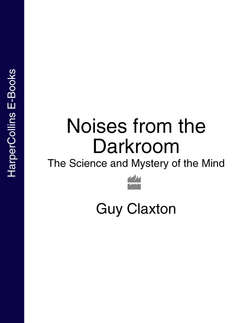Читать книгу Noises from the Darkroom: The Science and Mystery of the Mind - Guy Claxton - Страница 12
Science
ОглавлениеThe third and most recent source of information about the nature of mind comes from science; not the questionable analogies that have been drawn between mysticism and the speculative world of subatomic physics, but the emerging, biologically based investigations of systems theory, human evolution and the new hybrid discipline, comprising psychology, neuroscience, philosophy and artificial intelligence, known as ‘cognitive science’. What is emerging from this joint enterprise requires a startling reappraisal of the human mind; one which leads us to see the experiences of the mystics as no more and no less than a spontaneous ‘correction’ of the working of the brain.
Science is much revered, and equally maligned, at the present time, being seen as both villain of the ecological piece, and the only possible contender for the role of Saviour. Neither of these extreme reactions is justified, though each is true in part. It is true that the scientific world-view, by installing itself in our culture as the Only (Worthwhile) Epistemological Game in Town, has squeezed out of our minds other less explicit or articulate ways of knowing that are actually vital (as I shall argue in a moment) if we are to recover our ‘basic sanity’. And it is true that science has fathered the most unspeakable inventions of all time. But it is also true that science has provided us with a most powerful and elegant set of ways of thinking about the physical and biological worlds, and that this framework has made possible the development of technologies (of housing, transportation, medicine, communication…you name it) that have genuinely improved the quality of life for millions of people.
And science, however prone to witting or unwitting abuse, offers a powerful method for ‘sailing straight’; for getting our theories and assumptions to reveal their logical and practical conclusions, whether they suit us, whether we like them, or not. Common sense can happily and unwittingly sail round and round in circles, while convincing itself it is on a voyage of discovery. Rational thought by itself (contrary to its own Public Relations literature) is bound to follow the tracks laid down by our unconscious presuppositions, and being the servant of hidden dictates, its claims to objectivity are disingenuous. Science, for all its faults, though it zig-zags and falters, has the potential to help us to escape from the self-serving mental world of ‘common sense’. The inexorable power of its method can force us to think what had previously been unthinkable: what we had been prevented from even considering by the unconscious habits of thought on which we had been relying.
One of the contemporary misunderstandings of science is that it will relentlessly sweep away religion, spirituality and mysticism, like a bulldozer in a rain-forest, leaving only the flat and open land of Pure Reason. Nothing could be further from the truth. The value of science is in its ability to expose the shortcomings of ‘common sense’, and thereby to enable cultures to see, and to improve, their own myths. (Philosophers, shamans, poets and mystics are the traditional ‘scientists of the mind’ in this sense.) And having drawn attention to a limiting assumption, science can offer in its place not the ‘truth’ (for science can only ever deliver theories) but a more workable myth: a better model of some aspect of life. A scientist may be led by her theories to ask a question that ‘common sense’ would never have thought of, and if it had, would have written off as ridiculous. And every so often, the reply to such a question will challenge received wisdom, and make us think.
For example, take the simple word ‘see’. What could be more straightforward than the process of noticing what there is around, and acting in a way that takes account of what has been seen? Our common sense does not make a distinction between the conscious experience of seeing, and the more functional idea of ‘registering’ what is there, and incorporating that knowledge into our plans. It hardly makes sense to suppose that we could register anything if we could not ‘see’ it. Yet that is exactly what has been shown, by careful tests, to happen to patients who have suffered a certain kind of brain damage. They cannot ‘see’ anything in one part of their visual field, yet they can respond to questions in a way that they only could if they ‘knew’ what was there. They must be able to ‘see’, because they can act appropriately; yet they have absolutely no visual experience, and strongly deny that they ‘saw’.
We can either mutter ‘weird’, and write this phenomenon off as another piece of psychological trivia; or we can ask what this does to our common sense, to our ‘obvious’ relationship to our own consciousness. Just how much interpreting and decision-making actually goes on without the intervention, or even the knowledge, of the Chief Executive? Is where ‘I’ am sitting really the seat of power, or am I just a puppet, fed not with high-grade intelligence but with a thoroughly expurgated version of events, and handing down edicts to which the unconscious company turns a collectively deaf ear?
